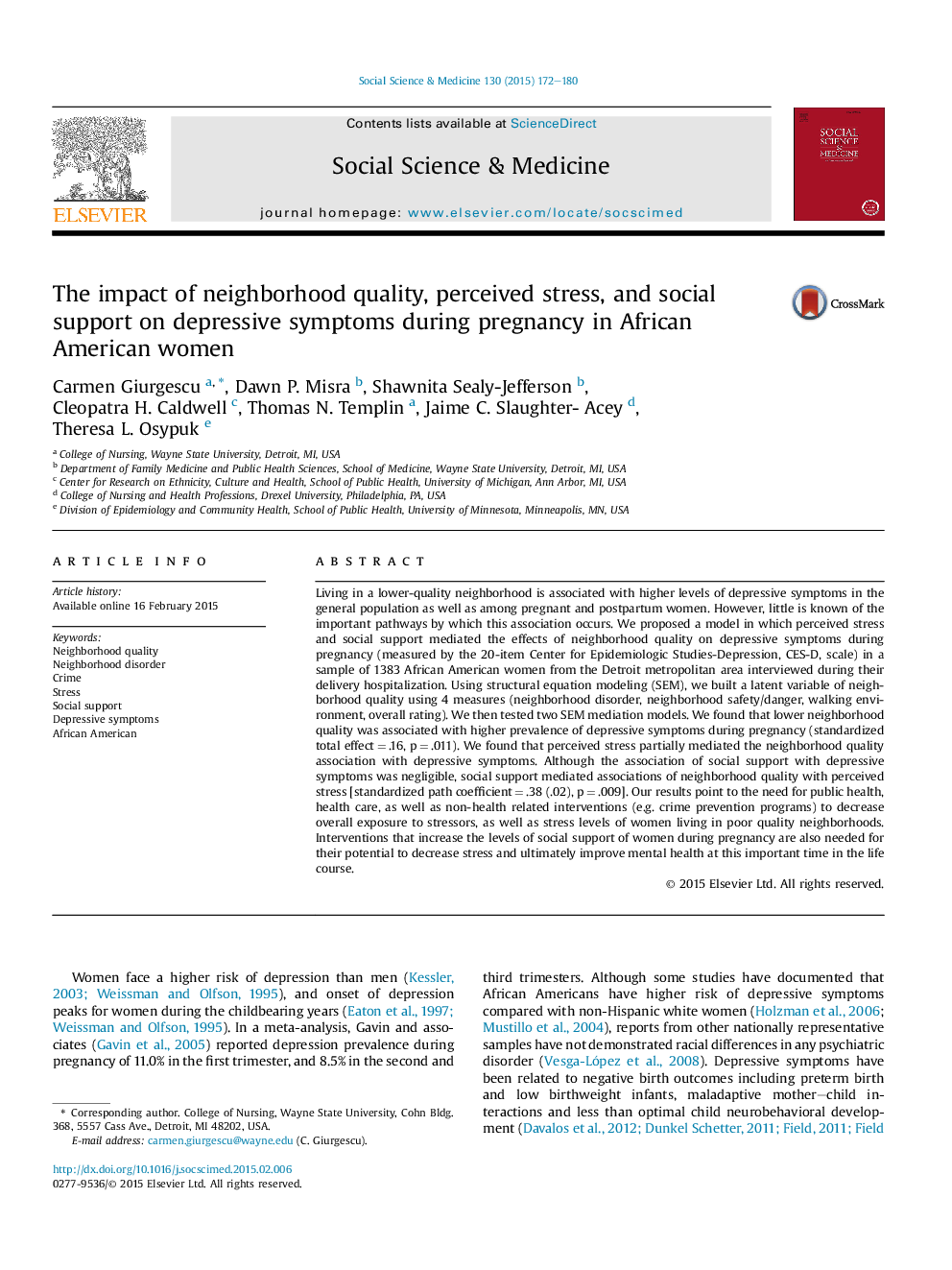| Article ID | Journal | Published Year | Pages | File Type |
|---|---|---|---|---|
| 7332978 | Social Science & Medicine | 2015 | 9 Pages |
Abstract
Living in a lower-quality neighborhood is associated with higher levels of depressive symptoms in the general population as well as among pregnant and postpartum women. However, little is known of the important pathways by which this association occurs. We proposed a model in which perceived stress and social support mediated the effects of neighborhood quality on depressive symptoms during pregnancy (measured by the 20-item Center for Epidemiologic Studies-Depression, CES-D, scale) in a sample of 1383 African American women from the Detroit metropolitan area interviewed during their delivery hospitalization. Using structural equation modeling (SEM), we built a latent variable of neighborhood quality using 4 measures (neighborhood disorder, neighborhood safety/danger, walking environment, overall rating). We then tested two SEM mediation models. We found that lower neighborhood quality was associated with higher prevalence of depressive symptoms during pregnancy (standardized total effect = .16, p = .011). We found that perceived stress partially mediated the neighborhood quality association with depressive symptoms. Although the association of social support with depressive symptoms was negligible, social support mediated associations of neighborhood quality with perceived stress [standardized path coefficient = .38 (.02), p = .009]. Our results point to the need for public health, health care, as well as non-health related interventions (e.g. crime prevention programs) to decrease overall exposure to stressors, as well as stress levels of women living in poor quality neighborhoods. Interventions that increase the levels of social support of women during pregnancy are also needed for their potential to decrease stress and ultimately improve mental health at this important time in the life course.
Keywords
Related Topics
Health Sciences
Medicine and Dentistry
Public Health and Health Policy
Authors
Carmen Giurgescu, Dawn P. Misra, Shawnita Sealy-Jefferson, Cleopatra H. Caldwell, Thomas N. Templin, Jaime C. Slaughter- Acey, Theresa L. Osypuk,
